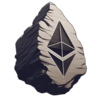As the Technical Lead/Solution Architect, you will play a critical role in shaping the architecture and technical strategy of our gaming platform. You will lead a multi-disciplinary team of developers, designers, and engineers to design and implement blockchain-based features, smart contract functionalities, and ensure seamless integration of gaming and payment systems. Your expertise in both game development and blockchain technology will guide the team in building a robust, scalable, and user-friendly platform that meets the needs of gamers and investors alike.
Key Responsibilities:
- Architecture Design: Lead the design and architecture of the gaming platform, ensuring it aligns with industry standards and best practices in both game development and blockchain technology.-
Blockchain Integration: Oversee the integration of smart contracts, crypto payments, and other blockchain functionalities within the platform to facilitate secure, transparent transactions for users.
- GameFi Development: Collaborate with game developers to implement GameFi features, ensuring a seamless user experience that engages players in both gaming and financial interactions.
- Tournaments and Betting: Design and implement tournament systems and betting features that are secure, fair, and compliant with relevant regulations.
- Technical Leadership: Mentor and guide a team of software engineers, promoting best practices in coding, testing, and development methodologies.
- Cross-Functional Collaboration: Work closely with product managers, designers, and stakeholders to gather requirements, define project scope, and deliver high-quality solutions that meet user needs.
- Performance and Scalability: Identify and resolve performance bottlenecks in both the gaming and blockchain components of the platform, ensuring a smooth user experience, and no downtime at high load.
- Security Best Practices: Establish and enforce security protocols to safeguard user data and funds, particularly in regards to smart contract interactions and cryptocurrency transactions.
- Stay Current: Keep abreast of industry trends, emerging technologies, and regulatory changes that could impact the gaming and blockchain landscape.
Qualifications:
- Education: Bachelor's or Master’s degree in Computer Science, Software Engineering, or a related field.
- Minimum of 7+ years of experience in software development, with at least 3-5 years in a senior role focusing on blockchain technologies and architecture.
- Proven track record of working on gaming platforms, with experience in game development (Unity, Unreal Engine, etc.) and understanding of GameFi concepts.
- Blockchain Expertise: Deep understanding of blockchain technologies (Ethereum, Solana, etc.), smart contracts (Solidity, etc.), and cryptocurrency payment systems.
- Technical Skills: Strong proficiency in programming languages such as TypeScript and Go. Familiarity with web3 frameworks and tools (Hardhat, Truffle, etc.) is highly desirable.
- Leadership: Demonstrated experience in leading technical teams and projects, with strong communication and interpersonal skills.
- Problem-Solving: Exceptional analytical and troubleshooting skills, with the ability to identify and resolve complex technical challenges quickly.
- Passion for Gaming: A genuine passion for gaming and understanding of its community and culture.
What we offer:
An exciting and growing international start-up with ambitious goals in a revolutionary, multi-billion dollar industry.
Attractive compensation plus token allocations.
Remote work in a timezone that corresponds well with UAE or Indochina time.
Paid vacation and public holidays.
Opportunity to work closely with the founding team and have your voice heard.
Compensation paid in USDT.
If you are excited about the opportunity to shape the future of gaming on a blockchain platform, please submit your resume, cover letter, and portfolio of relevant projects.


